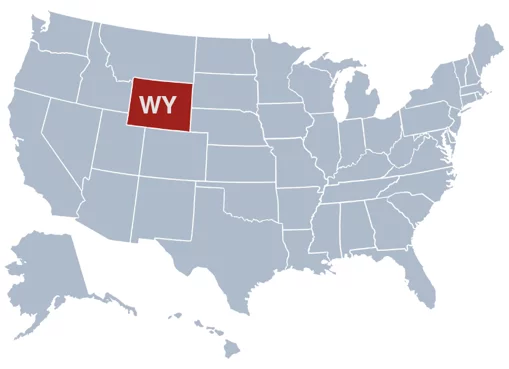The United States is becoming more litigious every year. Roadsides across the country are filled with signs promising quick payouts for every car, bike, and truck crash. Thanks to these advertising efforts, many Americans now believe that they can get rich quick by suing a wealthy individual.
Fortunately, if you have significant wealth, there are asset protection privacy techniques that can help you keep it safe. We’ve outlined several of these techniques to help you avoid a lawsuit:
- Actions That Undermine Asset Protection Privacy Techniques
- New Mexico LLC
- Nevis LLC
- Wyoming Corporation
- Land Trust
- Title-Holding Trust
- Spousal Gifting Trust
- Family LLCs/Limited Partnerships
- Domestic Asset Protection Trust
- Offshore Asset Protection Trust

Actions That Undermine Asset Protection Privacy Techniques
Before we dive into some of the most effective asset protection privacy techniques, let’s take a look at some actions that undermine the best-laid plans.
Effective asset protection plans require you to keep your wealth private. However, some people forget that keeping your wealth private means committing to showcasing a more modest lifestyle. Now, that doesn’t mean living in a small house and driving an old car. It does, however, mean being careful about how you publicly present yourself. After all, doing any of the following can accidentally reveal your true wealth:
- Driving exotic vehicles: When some people reach a financial milestone, they purchase a new luxury car. Now, there’s nothing wrong with driving an expensive vehicle, but you should know that it makes you a target for lawsuits. If you’re a car enthusiast, consider keeping your vehicle purchases off social media and using one of your less conspicuous cars as a daily driver.
- Owning a large home: Nice houses signify wealth, especially now that housing prices are reaching all-time highs. Make sure that you never post photos of your home on any public social media profiles.
- Wearing expensive clothing: Wearing designer clothes with visible logos isn’t always a great idea. To get around this problem, try finding nice items of clothing that have little to no branding.
- Posting travel photos: Constantly posting photos of yourself visiting exotic locales is a quick way to get noticed by a contingency fee lawyer. It’s best to keep these photos private if you can.
Remember, maintaining financial privacy means avoiding public displays of wealth. If you can create the perception that you aren’t rich, there is less likelihood that lawyers will come after you.

New Mexico LLC
A New Mexico LLC is another effective privacy protection tool. NM does not require limited liability companies (LLCs) to publicly list owners and members. Using this structure, you can enjoy the benefits of an LLC while keeping your name out of public records. If you use a New Mexico LLC to hold some of your assets, lawyers can have a hard time tracking down those belongings.

Nevis LLC
While a New Mexico LLC offers privacy, a Nevis LLC takes it further. You can’t even search Nevis public records online. That makes it nearly invisible to prying eyes.
Nevis is a small Caribbean island southeast of Florida. A Nevis LLC works best when paired with an offshore bank account. While that may sound inconvenient, it’s actually a benefit. Attorneys cannot easily make offshore banks provide client information, which adds yet another layer of privacy for your assets.
In addition to the above privacy features, Nevis LLCs offer the following benefits:
- Full privacy of ownership and control.
- A creditor must post a $100,000 bond to sue in Nevis.
- After 2 years, transfers into the LLC are immune from fraudulent transfer claims.
- Strong laws protect both single- and multi-member LLCs.
- No taxes on income earned outside Nevis.
- Fast setup—within 24 hours.
- Members can reside in any country.
- Low initial and annual fees.
- Charging orders against an LLC member’s interest fall off in 5 years.
- Proof beyond a reasonable doubt is required for a plaintiff to show that a transfer was made with the intent to delay creditors.

Wyoming Corporation
Wyoming allows you to form a corporation without corporate designator suffixes like “Inc.” or “Corp.” that most states require. The lack of a mandatory designator allows you to name your company like a person. For example, someone named “Pat Gunderson” can name the company “Pat Gunderson.” Then, if Gunderson—the individual—were to receive a check during a lawsuit, they could quickly deposit that check into the corporate account. Since the person and not the company is being sued, it would be much harder to track down the deposit.
Since corporations have their own tax ID numbers, there is less of a direct tie between a person and a corporation that shares their name. And when you combine a Wyoming corporation with a virtual office address and a nominee structure, it adds further legitimacy to the company. This, in turn, makes it easier to maintain asset protection privacy.
Land Trust
A land trust is a trust used for holding real estate titles. When you establish a land trust, you can own your property using a trust instead of your name. This keeps your name out of the public records.
When a lawyer runs a search for your assets, your name won’t show up in association with the real estate that you’ve placed into a land trust. You can even have a Wyoming or New Mexico LLC serve as the trustee, further separating your name from your land holdings.

Title-Holding Trust
A title-holding trust is essentially a land trust that holds vehicles and other assets that require state or federal titling. Much like a land trust, title-holding trusts create a layer of separation between you and the assets inside the trust by removing your name from public ownership records. Now, instead of your name appearing on any vehicle titles, the name of your trust and trustee will appear.
These trusts are fully revocable, meaning that you can claim the assets from within your title-holding trust at any time. However, this makes them poor candidates for asset protection, as a creditor can force you to liquidate a title-holding trust to pay a legal judgment.

Spousal Gifting Trust
Spousal gifting trusts are a style of irrevocable trust that provides married people with privacy, asset protection, and estate-planning benefits. To set up these trusts, one member of a couple makes an irrevocable transfer of assets into a trust where their spouse serves as a trustee. This transfer does not appear in public records. Additionally, because your spouse serves as the trustee, you retain a high level of control over the assets, which is atypical for irrevocable trusts.
Outside of asset protection and privacy benefits, spousal gifting trusts provide significant estate-planning advantages. These trusts can be funded with gifts of up to $19,000 each year (as of 2025). These gifts, in addition to the initial deposit amount, are not subject to estate tax when you pass away. The money in the trust can pass freely to your spouse or children without incurring any tax penalties.
Family LLCs/Limited Partnerships
Both family limited liability companies (FLLCs) and family limited partnerships (FLPs) offer a good deal of asset protection and privacy from creditors and lawsuits. By establishing either of these structures and then funding it, you can prevent your name from appearing on public records associated with the deposited assets.
These structures are also set up in a way that keeps your assets within your family. This allows you to maintain significant control over the assets you placed into the partnership. Furthermore, since everyone in the partnership is a family member, you likely have a higher degree of trust in them than you would in an unknown trustee or company appointee.
Domestic Asset Protection Trusts
A domestic asset protection trust (DAPT) is a form of self-settled, irrevocable trust that holds your assets. Any assets placed in a domestic asset protection trust gain immediate privacy, as they belong to the trustee once deposited. To maintain some degree of control over the trust, you can then appoint yourself as a beneficiary, which will allow you to receive distributions and other financial benefits that you outlined when forming the trust.
While DAPTs do provide a decent amount of privacy, it’s important to note that their efficacy varies greatly depending on where they are established. For example, a South Dakota asset protection trust has a short statute of limitations, strong protections against lawsuits, and remarkable privacy benefits. However, a trust that is established in a state without DAPT statutes, like California, doesn’t even allow for self-settled trusts.
Furthermore, domestic asset protection trusts all suffer from one fatal flaw: They can be impacted by court rulings from other states. Even if you set up your trust in Wyoming and do everything right, being sued in California could allow the court to cut through all the protections you thought you had. For that reason, we generally recommend offshore trusts over DAPTs.

Offshore Asset Protection Trusts
Offshore asset protection trusts (OAPTs) are a huge step up from domestic trusts and offer far more privacy than even the best DAPTs. Asset protection trust laws in the Cook Islands, Nevis, and Belize allow for the creation of self-settled trusts that provide powerful asset protection.
As you might imagine, because these trusts are established offshore, they’re even harder to trace back to you. Lawyers cannot force offshore banks, trustees, and companies to provide them with information. For a lawyer to find your trust, there would have to be a very clear line between it and you.
Even if a lawyer manages to link you to your OAPT, your assets remain well-protected. Offshore asset protection trusts are immune to U.S. judgments, so even if you lose a lawsuit in the United States, your creditors cannot touch the assets you’ve placed into one of these trusts. To get their hands on your assets, they’d need to go to the jurisdiction where the trust is located and file a fraudulent transfer lawsuit in person. The cost of this alone is enough to deter a majority of creditors.
In a worst-case scenario, where a creditor does manage to file a lawsuit against your trust, you’re still likely to come out no worse for wear. Top offshore jurisdictions like the Cook Islands, Nevis and Belize, and require fraudulent transfer cases to be proven beyond a reasonable doubt—the same burden of proof that the United States requires for criminal trials.

Build Financial Privacy with Help from Asset Protection Planners
If you’re looking for an asset protection plan that can keep your wealth safe from creditors, you need to consider keeping your assets private. Luckily, the experts at Asset Protection Planners know how to shelter your assets from prying eyes.
Schedule a free consultation with us today. We’ll walk you through the strategies we use to hide assets and set up asset protection privacy tools that work for you.


